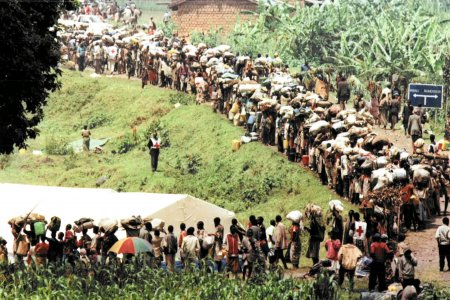 John Parkin
Interview
John Parkin
Interview
01/10/2018
Marc Le Pape
Jean-Hervé Bradol
How much is known about the daily experiences of humanitarian workers in extreme situations such as major conflict or disaster? In their new book, “Humanitarian Aid, Genocide and Mass Killings: Médecins sans frontières, the Rwandan experience, 1982-97”, Marc Le Pape and Jean-Hervé Bradol set out to answer some of these questions. The book is also informed by Bradol’s experience of working for Médecins Sans Frontières in Rwanda during the genocide.
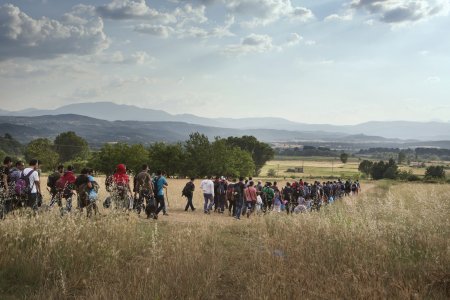 Alessandro Penso
Op-ed
Alessandro Penso
Op-ed
01/12/2018
Michaël Neuman
Abstaining from participation in a meeting taking place this coming Thursday, MSF feels that "government officials have listened politely at best and shown condescension and contempt at worst in response to positions expressed in meetings, op-ed pieces published in the press and questions asked in meetings by NGOs" and do not hide "a policy that is sliding into harsh repression".
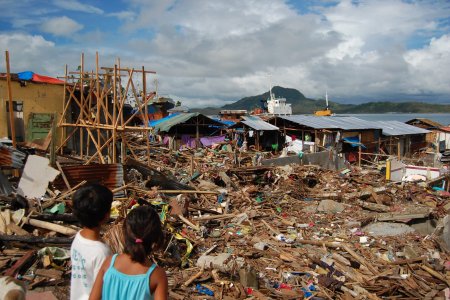 Sophie Jane Madden
Interview
Sophie Jane Madden
Interview
01/03/2018
Rony Brauman
Former president of the NGO Médecins Sans Frontières and current director of studies at the MSF Foundation’s Centre de réflexion sur l’action et les savoirs humanitaires (CRASH), Dr Rony Brauman, explains the difficulties involved in obtaining reliable figures on the human costs of natural disasters.
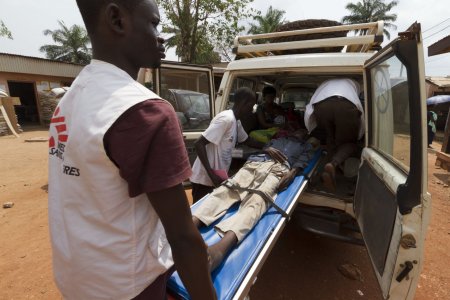 Andre Quillien
Review
Andre Quillien
Review
11/24/2017
Kevin McMahon
Kevin MacMahon's review of "Saving Lives and Staying Alive: Humanitarian Security in the Age of Risk Management" (Michaël Neuman and Fabrice Weissman, London: C. Hurst & Co, 2016) is published in the Journal for the Study of Peace and Conflict (2016, pages 69-70).
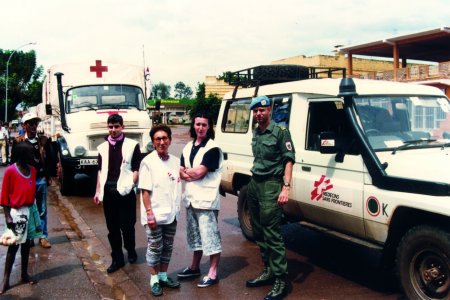 Xavier Lassalle
Op-ed
Xavier Lassalle
Op-ed
10/27/2017
Jean-Hervé Bradol
This op-ed article was published on 27 October 2017 in the French weekly Marianne. He writes it in the backdrop of a controversy around a "Que Sais-Je" book on Rwanda published by the Belgian researcher, Filip Reyntjens and the accusations against him that he rewrites history and seeks to minor the genocide of the Tutsis in 1994.
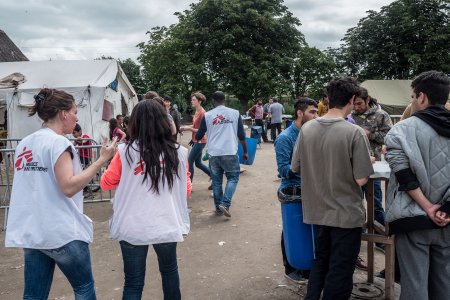 Charles Habib
Analysis
Charles Habib
Analysis
07/05/2017
Michaël Neuman
Franck Esnée
Following the dismantlement of the Basroch camp in Grande-Synthe and the resettlement of refugees in the new La Linière camp, in the spring 2016, Michaël Neuman and Franck Esnée wanted to focus their analysis and story on the “camp” – as an object –, its nature and management. This article was originally published in Alternatives Humanitaires #5, in July 2017.
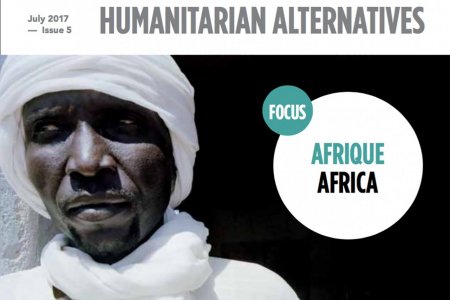 Alternatives Humanitaires
Interview
Alternatives Humanitaires
Interview
07/05/2017
Marc Le Pape
Marc Le Pape, sociologist and member of MSF-Crash Scientific Committee, is interviewed by Boris Martin, Editor-in-chief of Alternatives Humanitaires, about his and Jean-Hervé Bradol's latest book "Humanitarian aid, genocide and mass killings: MSF, the Rwandan experience (1982-1977)".
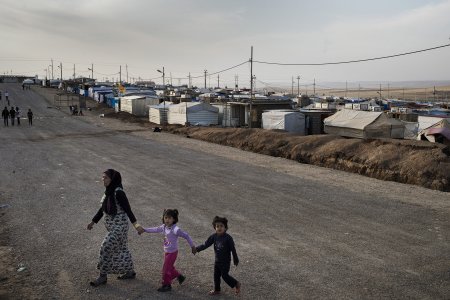 Yuri Kozyrev/Noor
Opinion
Yuri Kozyrev/Noor
Opinion
03/06/2017
Rony Brauman
There can scarcely be any more sensitive marker of geopolitical transformations than the refugee. Not the individual refugee as such, but the phenomenon of refugees, the representations that make them visible and the discourse around them. From this point of view, 2016 was a year of upheaval, the like of which Europe had not seen since the war in the former Yugoslavia.
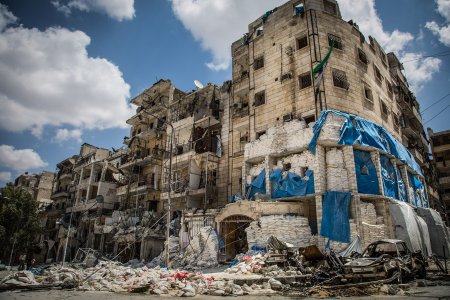 Karam Almasri
Interview
Karam Almasri
Interview
02/15/2017
Pierre Mendiharat
Interview with Pierre Mendiharat, deputy director of operations (MSF).
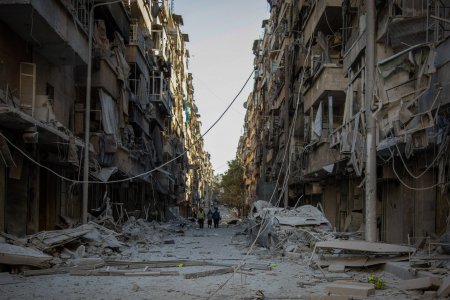 Karam Almasri
Interview
Karam Almasri
Interview
01/27/2017
Jean-Hervé Bradol
Matthieu Rey
Interview with Jean-Hervé Bradol, MSF-Crash research director, and Matthieu Rey, CNRS researcher attached to IREMAM (Muslim and Arab World Research Institute) and member of the WAFAW research programme.
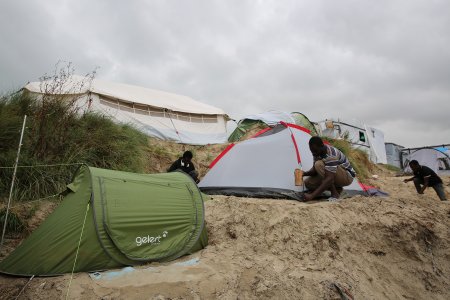 Mohammad Ghannam
Op-ed
Mohammad Ghannam
Op-ed
06/17/2017
Michaël Neuman
Corinne Torre
In this post, published in Border Criminologies, Michaël Neuman and Corinne Torre speak out against the inhuman conditions imposed on migrants and refugees in Calais by the French state. This piece was originally published in French in Le Monde.
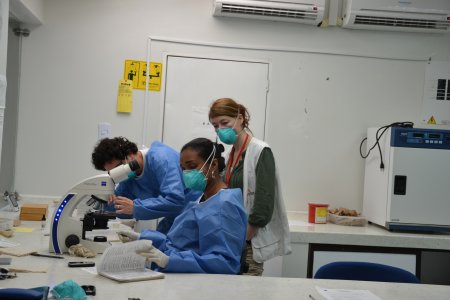 Karine Bodart
Analysis
Karine Bodart
Analysis
04/27/2012
Jean-Hervé Bradol
Francis Varaine
Epidemiological studies estimate that nearly nine million people were suffering from active tuberculosis (TB) in 2010, causing upwards of one and a half million deaths. More than 90% of these deaths took place in low- or middle-income countries, thus reinforcing an old idea that TB and poverty are strongly linked.
 John Parkin
Interview
John Parkin
Interview










